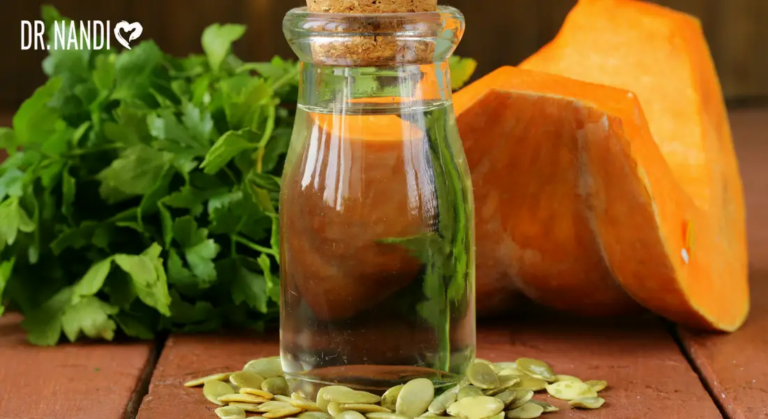Did you know that the acidity of coffee can cause discomfort in individuals with sensitive stomachs or specific health conditions? Around 20% of people in the US suffer from acid reflux, and one of the things that can trigger or worsen this condition is drinking coffee due to its acidity. This implies the need for a simple and effective solution to reduce coffee acidity.[1]
Surprisingly, a simple and often overlooked solution is by adding just a pinch of baking soda to your coffee. This small addition can bring numerous benefits, such as enhancing the flavor and soothing stomach discomfort.
Why Is Coffee Acidic and How Does Baking Soda Help?
Coffee owes its distinct flavor profile to the various acids naturally present in coffee beans. Some of these acids, such as chlorogenic acids, even possess antioxidant and anti-inflammatory properties that can benefit our health. However, an excessive amount of these acids can lead to unpleasant symptoms such as acid reflux, heartburn, and indigestion. [2,3]
When faced with bitter coffee, people often resort to various methods to enhance its flavor. These may include using filtered water for brewing, adding milk or sweeteners, adjusting the brewing time, or even incorporating spices. While these tactics can be effective, adding a pinch of baking soda is a simpler and more affordable alternative.
Also known as sodium bicarbonate, this common kitchen ingredient is alkaline in nature. When added to coffee, it interacts with the acids, slightly raising the pH and reducing the overall acidity of the beverage.
Moreover, by neutralizing the acids, baking soda reduces bitterness and alters our taste receptors, ultimately enhancing the sweeter flavors in coffee. This means that even lower-quality or inexpensive coffee can taste smoother and more satisfying.
It’s important to note that this process doesn’t eliminate all the acids since they contribute to coffee’s characteristic taste. However, adding just a small amount of baking soda can provide several benefits.

Better Health With a Dash of Alkalinity: Benefits of Adding Baking Soda to Your Coffee
By adding baking soda to your daily cup of joe, you’ll unlock a range of amazing benefits. Here are the incredible advantages of this simple coffee upgrade.
Your Digestive Relief in a Cup
Although coffee itself doesn’t cause stomach ulcers, people with ulcers often experience increased stomach pain and discomfort after consuming coffee due to its acidity.
By neutralizing excess acidity, baking soda could be a simple yet effective tool to neutralize the acids and lower the overall acidity levels in the stomach. It also results in a reduction of gastrointestinal discomfort associated with stomach ulcers, allowing sufferers to enjoy their favorite caffeinated beverage without worry.
This benefit is particularly helpful for those who prefer lighter roasts, as they tend to be more acidic than darker roasts due to the roasting process and temperature.
A Gout-Friendly Solution for Regulating Uric Acid Levels
Gout, a painful form of arthritis, is caused by high levels of uric acid in the bloodstream. This condition leads to the formation of crystals in the joints, resulting in intense pain, tenderness, redness, and swelling.
Research published in the Diabetes, Obesity, and Metabolism journal has shown that oral sodium bicarbonate can regulate urine pH and reduce uric acid crystals in urine.[4] Therefore, individuals with gout may find relief by adding baking soda to their daily cup of coffee. It’s important to consult with a healthcare provider before trying this alternative treatment to ensure it is suitable for your specific situation.
An Economical and Calorie-Free Alternative
In addition to its effectiveness, baking soda is an affordable and easily accessible ingredient. Prices may vary depending on the brand and size, but you can find a 1 lb (454 g) box for as little as $0.75.
If you only use baking soda for your coffee, smaller packages or baking soda packets are also available. Furthermore, baking soda is calorie-free, making it an excellent option for those seeking a healthier lifestyle without compromising the taste of their coffee. Unlike whole milk, flavored creamers, or sweeteners, baking soda won’t increase the caloric content of your beverage.

How Much Baking Soda Should I Add to Coffee?
Determining the correct amount of baking soda to add to your coffee is crucial to maintain the desired taste. You can either add baking soda directly to the ground coffee beans before brewing or to a single cup of coffee.
Here are the recommended measurements:
- For brewing a full pot of coffee, add ½ teaspoon (2.84 g) to 1 teaspoon (5 g) of baking soda to the ground coffee beans.
- For a half pot of coffee, use ¼ teaspoon (1.42 g) of baking soda.
- For a quarter pot of coffee, use ⅛ teaspoon (0.71 g) of baking soda.
- For a single cup of coffee, add a pinch or approximately 1/16 teaspoon (0.36 g) of baking soda.
These measurements are sufficient to reduce acidity, smoothen bitterness, enhance sweetness, and make the coffee easier on the stomach. It’s recommended to use precise measuring spoons or a food scale to avoid adding too much baking soda, which could result in an unpleasant taste.
Caution: Can You Add Too Much Baking Soda to Coffee?
Adding baking soda to your coffee indeed enhances the taste by reducing bitterness and highlighting the sweeter flavors. However, it’s important to note that too much baking soda may introduce an unpleasant salty or metallic flavor and lead to gastrointestinal symptoms such as bloating, nausea, constipation, or an upset stomach. Therefore, correct measurements are crucial to strike the right balance.
My Personal RX: Preventative Measures
Let me emphasize that coffee, with its antioxidants and morning energy boost, can be safely enjoyed by most healthy adults, typically up to four cups (about 945 ml) per day. However, to strike the perfect balance between relishing your coffee and maintaining good health, here are my personalized recommendations for you to consider.
- Pay attention to your body’s reaction to coffee. If you experience frequent stomach discomfort, acid reflux, heartburn, or other related symptoms, consider trying the baking soda remedy.
- Consult with a healthcare provider before adding baking soda to your coffee, especially if you have pre-existing health conditions or are on medication.
- Start with a smaller amount of baking soda and gradually increase the dosage if needed. It’s important to find the right balance that suits your taste preferences and stomach sensitivity.
- Monitor your body’s response to the baking soda remedy. If you experience any adverse effects or discomfort, discontinue use and consult with a healthcare professional.
- Store baking soda in a cool, dry place to maintain its freshness. Using precise measuring spoons or a food scale will help you add the correct amount to your coffee.
- Eat low-acid foods such as beans, lentils, fruits, vegetables and nuts. Add my Digestive Enzymes to your daily routine to improve overall nutrient absorption.
- Unleash the power of nutritious ingredients that go hand in hand with coffee’s benefits, and savor delightful flavors while nourishing your body. Discover a treasure trove of healthy recipes that perfectly complement your favorite brew in my Superfoods Cookbook!

Sources:
- Definition & Facts for GER & GERD. (2022). National Institute of Diabetes and Digestive and Kidney Diseases. https://www.niddk.nih.gov/health-information/digestive-diseases/acid-reflux-ger-gerd-adults/definition-facts
- Rojas-González, A., Figueroa-Hernández, C. Y., Gonzalez-Rios, O., Suárez-Quiroz, M. L., González-Amaro, R. M., Hernández-Estrada, Z. J., & Rayas-Duarte, P. (2022). Coffee chlorogenic Acids incorporation for bioactivity Enhancement of Foods: A review. Molecules, 27(11), 3400. https://doi.org/10.3390/molecules27113400
- Kim, J., Oh, S., Myung, S., Kwon, H. T., Lee, C., Yun, J. M., & Lee, H. K. (2013). Association between coffee intake and gastroesophageal reflux disease: a meta-analysis. Diseases of the Esophagus, 27(4), 311–317. https://doi.org/10.1111/dote.12099
- Bjornstad, P., Maahs, D. M., Roncal, C., Snell-Bergeon, J. K., Shah, V. N., Milagres, T., Ellis, S. L., Hatch, M., Chung, L. T., Rewers, M., Garg, S. K., Cherney, D. Z., Pyle, L., Nadeau, K. J., & Johnson, R. J. (2018). Role of bicarbonate supplementation on urine uric acid crystals and diabetic tubulopathy in adults with type 1 diabetes. Diabetes, Obesity and Metabolism, 20(7), 1776–1780. https://doi.org/10.1111/dom.13274




















